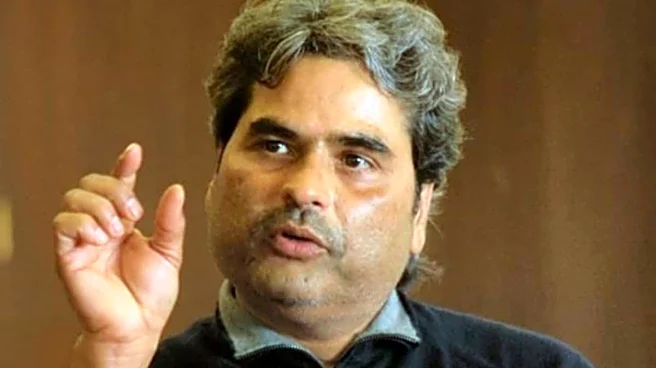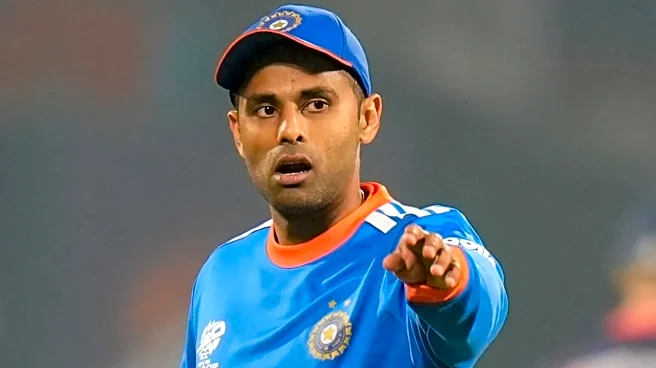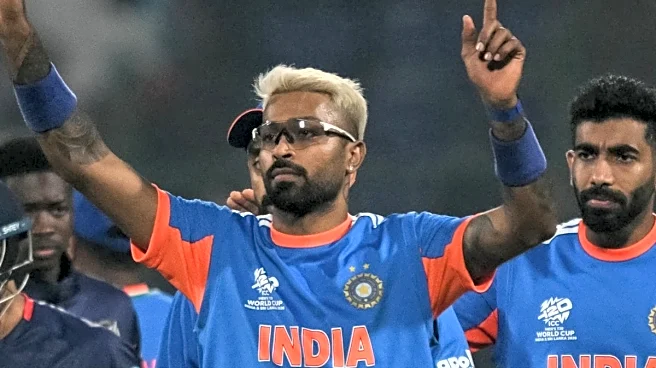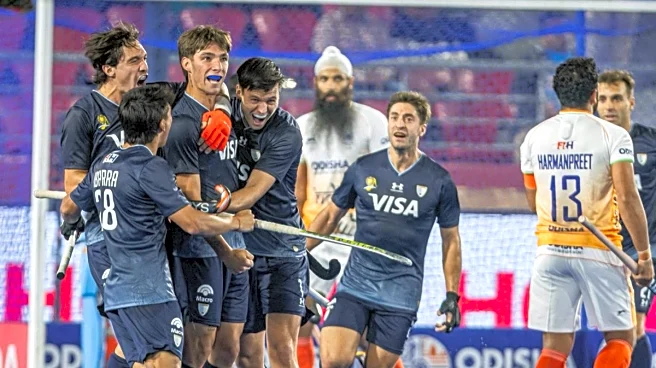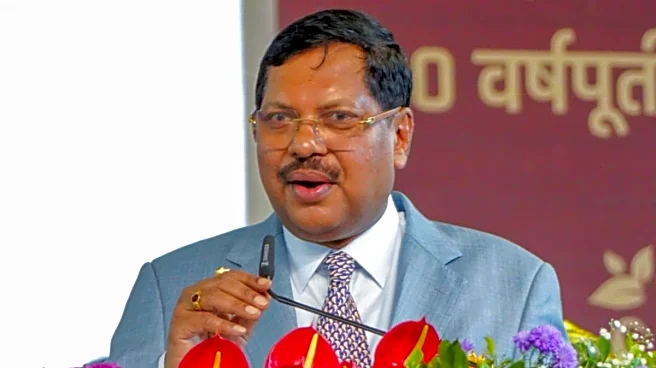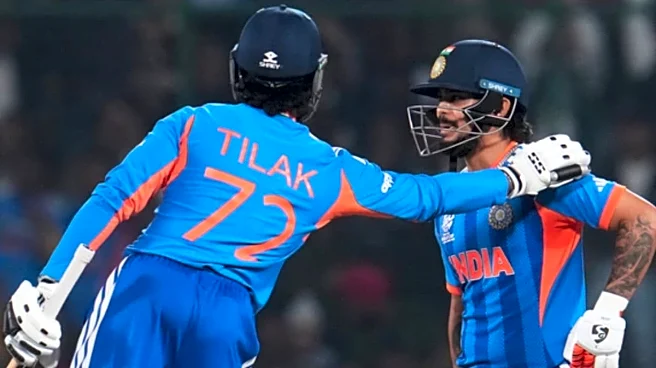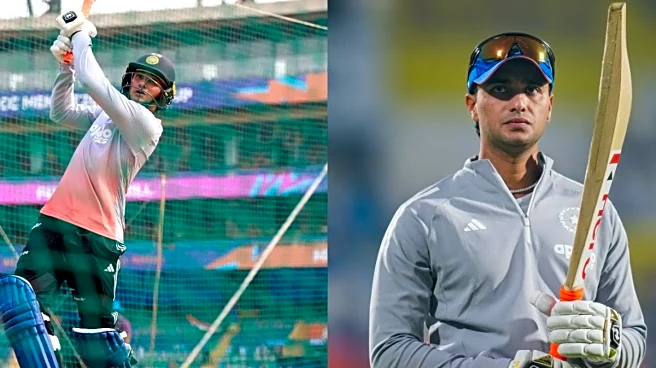The Annual Lata Mangeshkar Memorial Talk at IFFI, titled The Rhythms of India, From the Himalayas to the Deccan, unfolded like a musical journey that moved between remembrance, artistic instinct and the intimate mechanics of creation. With composers Vishal Bhardwaj and B. Ajaneesh Loknath in conversation and critic Sudhir Srinivas steering the evening, the session offered an unusually unfiltered look into how two distinctive musical minds think, remember and imagine sound. The talk also veered into one of the most pressing questions of contemporary artistry, the role of AI in music, a subject that provoked candid, layered responses from both composers.
A Room Filled With Memory and Music
The evening began warmly, with filmmaker Ravi Kottarakkara
felicitating the speakers and reminding the audience that music remains one of the few forces that can lift, bind and heal. That gentle prelude paved the way for a conversation that was humorous in moments, philosophical in others and consistently alive with the pulse of lived musical experience.
Sudhir Srinivas guided the flow with ease, moving from questions about early influences to the architecture of composition and the anxieties and possibilities of modern technology. What emerged was a portrait of two musicians who share deep respect for craft but arrive at their art through entirely different portals of instinct.
AI Enters The Conversation, “It Depends on the Preference of the Individuals”
When the audience raised a question about artificial intelligence and its expanding role in music creation, Ajaneesh Loknath responded with thoughtful clarity. He said, “See, it depends on the preference of the individuals, see, AI is there. Obviously, if you ask me, I will not use AI. It’s my preference. And we can’t compel others not to use. It’s a technology. And a very famous proverb is there, that we have to change according to the change. So it depends on the individual’s preference whether to use it or not. So it is there.”
He then addressed the fear surrounding AI, reminding the audience that context determines usefulness. “If it is used in a right, positive purpose, it’s a great thing. Or else, if it is not used, then…,” he paused, before continuing with an example from his early years. “See, now, when I started, you know, composing in my initial days, when I can’t afford a soloist, I used to put an vocal there and do it there, like that. So, like that, when it comes now, you can sing and turn it into the other instruments only. So, when your need is there, when you can’t afford a kind of musicians, in that space, I think it is useful for a budding artist who can’t afford the musicians or studios and everything.”
His conclusion was simple. “So, in that way, I think it is useful. But it will, based on context, which context you are going to use. And I think we shouldn’t be afraid of technology.”
Vishal Bhardwaj Responds, “We Shouldn’t Be Scared of It, and We Shouldn’t Discard It Either”
Vishal Bhardwaj offered a broader philosophical perspective, speaking from memory and lived experience. “We shouldn’t be scared of it. And we shouldn’t discard it either. Because I remember, when I was young, and when computers were being replaced, when we used to go to book tickets in the train, after standing in the queue for an hour, we used to find out that, oh no, now the waiting list number is 1. And you are standing in the queue for 1.5 hours.”
He recalled the panic that accompanied early technological shifts. “When all these computers started changing, I remember there was a movement that all these people will be destroyed, computers will remove everyone. Now can we think life without computers? So, we can’t think. Because you can’t fight progress.”
He reminded the audience that music technology had been evolving long before AI became the headline. “I think, as a, you know, you know, these different versions of AI, I am not talking about AI, I am talking about loops. The loops of our rhythm, or the samples, they have been available for the last 20 years. So, they all use it in their own way. We all use it the way we want.”
But he drew a clear line around what AI can never replicate. “AI will never be able to fall in love. So, we should be very assured. It will never be able to feel the death and love. So, you know, that heart will remain ours. So, sooner or later we will get to know how to use it and not to use it.”
A Reminder From Both Composers, Emotion Has No Substitute
The composers reflected on earlier phases of technological disruption, such as the arrival of keyboards and sample libraries. Loknath added, “Yes, actually, when the newly, when we get samples, so, in one keyboard, they used to play all the string sections, everything. And people used to say, okay, then now gone. The live musicians, you know, the violin, now it is the most costly thing.”
Bhardwaj echoed him, “Yes, costliest. Costliest thing. We can’t afford, you know, we are going to Budapest, we are going to abroad to record the violin.”
Then came the sentence that framed their entire philosophy. Loknath said, “So, it will have an effect. And, but it can never replace, AI can never replace the human emotion. We are divine, that is AI.”
A Musical Evening Rooted in Memory, Wisdom and Play
What made the session special was not simply the conversation on AI but the way both composers approached music as something deeply human, intuitive and emotional. Throughout the evening, they shared anecdotes from their careers, spoke about melodies that arrived like whispers, and recalled memories of recording rooms, creative accidents and discoveries that shaped their sound.
The talk, dedicated to Lata Mangeshkar’s memory, felt like a fitting tribute, grounding the discussion in the assurance that technology may evolve, tools may transform, but the emotional core that makes music meaningful remains beyond replication.
The Rhythms of India became, ultimately, a reminder that innovation and instinct can coexist, but the pulse of music continues to live in the human heart.
